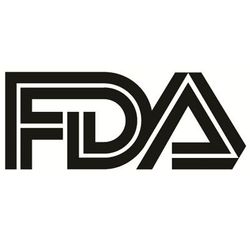
OR WAIT null SECS
Egg Consumption Through Breast Milk Insufficient for Allergy Prevention in Infants at 12 Months
In this analysis, egg consumption among pregnant mothers was found to be insufficient for the development of oral tolerance to eggs among infants at 1 year of age.
Egg consumption through breast milk at 1 month is not sufficient for development of oral tolerance to eggs among infants at the age of 12 months, new findings suggest, and eczema at 6 months is significantly linked to the development of egg allergies.1
These data resulted from new research conducted to assess the impact of maternal egg consumption during the lactation period on the development of their offsprings’ egg allergies. This study was authored in part by Sakurako Kishino, from the department of midwifery and women's health at the University of Tokyo Graduate School of Medicine in Japan.
Kishino and colleagues highlighted the fact that In Japan, the most predominant food allergen among 1-year-old infants is eggs. They also noted that caregiver-reported allergies to food and egg allergies were seen among 7.6% and 5.3%, respectively.2
“This study aimed to investigate whether maternal egg consumption during the early lactation period is associated with the development of egg allergies while considering the factors of infant feeding methods and eczema,” Kishino et al. wrote. “We hypothesized that infants exposed to higher amounts of eggs through breast milk at 1 month would have greater oral tolerance, resulting in a reduced risk of an egg allergy at 12 months.”1
Trial Design Details
The investigators conducted their research using a multicenter prospective cohort trial design as part of the Japan Pregnancy Eating and Activity Cohort Study (J-PEACH Study). J-PEACH was formed with the aim of evaluating relationships between maternal lifestyle behaviors and health outcomes for both mothers and their offspring.
In a set of 4 regions within Japan—specifically, Tokyo, Yamagata, Osaka, and Fukuoka—the research team assessed mothers and their infants during the period between pregnancy through to the initial 12 months after they gave birth.
The team provided detailed questionnaires to their study subjects, with responses related to consumption of eggs, the presence of eczema in their infants at the half-year mark, breastfeeding rates at 1 month postpartum, and the existence of egg allergies in infants by the 12-month mark. In terms of their main focus, the researchers sought to evaluate the development of egg allergies in infants through the implementation of the provided questionnaires.
Additionally, the investigators looked at various sociodemographic data which they gathered through medical records and their questionnaires. Some examples of these data include the infant’s sex, weight at birth, gestational age, number of siblings, and delivery mode. For mothers, they looked at level of education, age, smoking status, and location during the surveys.
For the purposes of assessing the impact of maternal egg consumption on the development of an infant's allergies, the research team calculated breastfeeding-dependent egg consumption at a single month by combining maternal egg consumption data with rates of breastfeeding.
They utilized a logistic regression analysis to identify the level of risk and protective factors linked to egg allergies.
Major Findings
The research team could not identify a significant link between breastfeeding-dependent egg consumption at the 1-month mark and the development of egg allergies by 12 months of age among their offspring. The team found that among the 420 infants who they assessed over the course of their research, there were 27 who had egg allergies at the 12-month mark.
Despite their findings, it was also reported that the infants who developed eczema at 6 months of age were shown to be much more likely to see the development of an egg allergy by 12 months. There was an adjusted odds ratio of 3.59 (95% CI, 1.59–8.13).
The data resulting from this study suggested that breastfeeding-dependent egg consumption at a single month did not lead to necessary oral immune tolerance for infants by their first year of life. The investigators did, however, find that the existence of eczema at 6 months had emerged as a key risk factor for egg allergy development.
“It is necessary for healthcare providers to emphasize the importance of prevention, early detection, and treatment of eczema, including atopic dermatitis,” they wrote. “It is also important for healthcare providers to inform mothers who avoid egg consumption due to concerns about infant egg allergies that there is no evidence indicating that maternal egg consumption affects the development of egg allergies in their infants.”1
References
- Kishino, S., Yonezawa, K., Haruna, M., Usui, Y., Sasaki, S., Fujita, M., Matsuzaki, M., Sato, Y., Suetsugu, Y., Ohori, R., Tanaka, M., & Aoyama, S. (2025). Relationship between maternal egg consumption during lactation and the risk of developing egg allergies in 12-month-old infants: A multicenter cohort study. Japan Journal of Nursing Science, 22(1), e12631. https://doi.org/10.1111/jjns.12631.
- Yamamoto-Hanada, K., Pak, K., Saito-Abe, M., Yang, L., Sato, M., Irahara, M., Mezawa, H., Sasaki, H., Nishizato, M., Ishitsuka, K., Ohya, Y., & Japan Environment and Children's Study (JECS) Group. (2020). Allergy and immunology in young children of Japan: The JECS cohort. The World Allergy Organization Journal, 13(11), 100479. https://doi.org/10.1016/j.waojou.2020.100479.


